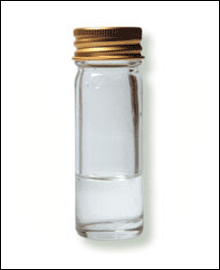 Being drugged wasn’t like being drunk, the women all say. It was different.
Being drugged wasn’t like being drunk, the women all say. It was different.
"My body was paralyzed in a way that I had never felt before," says M., a 26-year-old law student who lives in Jamaica Plain. "I remember being voiceless. It was like this body wasn’t mine."
Five years ago, when M. was 21, she spent a summer in Fort Lauderdale, living on and fixing up a boat with her older brother. The tall, slim brunette, who picks at her fingernails and looks you right in the eye when she talks, was used to nights of drinking and having fun. But one evening, after having one or two beers at a bar with her brother and a friend, she felt tired and headed home. Along the way, she decided to stop at the boat of a man with whom she had had a short-lived fling earlier that summer. There was no lingering romance between them; she wasn’t going over to have sex with him. "I remember being sober," she says.
M. trusted this man — she had no reason not to. He gave her a Corona, and she drank about a third of it. The next thing M. knew, she was coming to in the berth of the boat, with the man on top of her. "I opened my eyes and he was raping me." She faded back out of consciousness. The next morning, she felt "hazy, confused," and while she "knew something had happened," she didn’t know quite what. It wasn’t until later that she pieced together the truth: M. was the victim of a drug-facilitated rape.
One out of every six women has been raped, and date rape or acquaintance rape is more than twice as common as rape by a stranger, according to national Department of Justice statistics. (Of 209,880 rapes reported nationwide in 2004, a full 67 percent were perpetrated by an acquaintance.) Here in Massachusetts, the ratio is even higher. From July 2003 to July 2004, rape-crisis-center hotlines received about 2400 calls from rape survivors. Ninety percent of them knew their assailants, according to the state Department of Public Health.
National surveys show that anywhere from 55 to 90 percent of acquaintance rapes involve alcohol or drug use on the part of the victim or the assailant. In most of those cases, the substances are ingested voluntarily.
But in cases like M.’s, they aren’t.
In the Boston area alone, the number of women who believe they were slipped something like roofies or GHB and then raped is growing — a total of 68 (out of 296 who called the Boston Area Rape Crisis Center [BARCC] hotline) in 2005, a jump of 21 women, or 30 percent, over 2004. Meanwhile, public-education programs about so-called date-rape drugs — on college campuses, in local bars and clubs — are on the rise (even while rape-crisis centers struggle for funding).
Date rape isn’t going away anytime soon. But is it getting worse?
Phantom toxins
 All rape stories involving drugs sound eerily similar: a woman was hanging out with a person or a few people with whom she felt relatively comfortable; she was with a man she had no explicit reason not to trust. She may have had a few drinks, but nothing out of the ordinary, no binge-drinking. The next thing she knew, she woke up to that man having sex with her, or lying next to her naked.
All rape stories involving drugs sound eerily similar: a woman was hanging out with a person or a few people with whom she felt relatively comfortable; she was with a man she had no explicit reason not to trust. She may have had a few drinks, but nothing out of the ordinary, no binge-drinking. The next thing she knew, she woke up to that man having sex with her, or lying next to her naked.
"The last thing I remember was sitting on a couch in a dorm room, watching TV," says 25-year-old P., who lives in Philadelphia. (All of these women, contacted through the BARCC and the national Voices and Faces Project, agreed to tell their stories to the Phoenix anonymously.) "The next thing I remember, I was in my dorm room two floors up. I didn’t have any clothes on. Everything felt like it was moving really slowly."